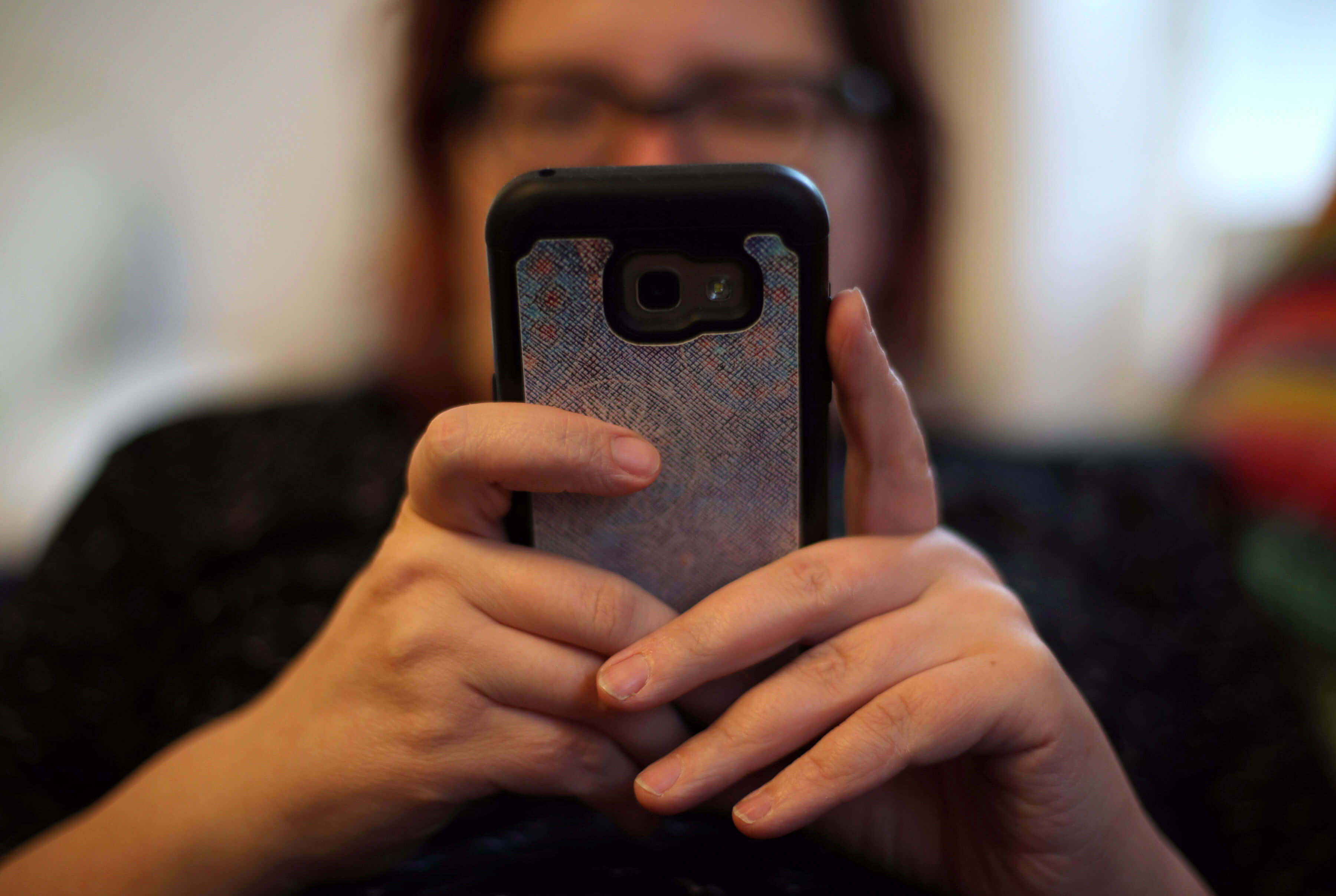Online gambling has fueled an industry boom that threatens public health, commission finds

Beyond financial losses, gambling can lead people to lose their jobs, relationships or health and raise the risks of suicidality and domestic violence, the report said. Even people who do not qualify as having gambling disorders suffer their harms, the commission found, including casual gamblers and relatives of those experiencing problematic gambling.
The report highlighted the role online gambling has played in the rising availability of commercial gambling as a whole. It named legal sports betting apps like DraftKings or FanDuel as examples in the U.S., along with online casinos and slot machines.
“The accessibility is now 24/7,” said Heather Wardle, a researcher on the commission and a professor of urban studies, social policy and health at the University of Glasgow in Scotland. “They can target advertising to you that they know you will respond to. It makes it incredibly difficult to switch off. … Any greater exposure to gambling is associated with greater harms.”
A representative for FanDuel said that it “fully supports a regulated marketplace that protects customers and delivers significant tax revenue to states” and that it is “helping to lead continued discussions across the industry that prioritize creating best practices to protect customers.”
The platform offers its users the ability to set limits on their deposits, wagers and time spent on its apps, as well as an option to self-exclude from further betting.
DraftKings, which declined to comment, offers similar protections. Its website advises users to “always set reasonable limits” and recommends that people “avoid gaming if you are in recovery from any dependency.” Both companies follow state regulations.
In its report, the Lancet commission criticized governments worldwide for paying too little attention to the harms of gambling and not implementing sufficient gambling-related public health protections. The authors recommended that leaders adopt policy frameworks that put the onus on gambling businesses, instead of gamblers, to minimize harm.
Their suggestions include restricting gambling access and advertisements, launching marketing campaigns about the consequences of gambling and providing more robust support for those who suffer harms. The authors also called on governments to implement and enforce minimum age requirements and betting limits.
The report notes that various states and countries already have such measures. Belgium, the Netherlands and Ontario, for example, have varying restrictions on gambling advertising, including online gambling. Germany limits brick-and-mortar casinos’ operating hours. Spain, Sweden and Norway have mandatory loss limits for online betting. And in Massachusetts, Illinois, Virginia and Pennsylvania, a percentage of in-state operators’ revenues goes to gambling rehabilitation funds.
Alan Feldman, director of strategic initiatives at the University of Nevada, Las Vegas’ International Gaming Institute, who was not on the commission, said many of the safeguards the report suggests already exist.
But he said he sees some of those regulations as “a misunderstanding of what responsible gaming is meant to be.”
“The individual has to accept some responsibility or treatment is not going to work,” said Feldman, who worked for MGM resorts for nearly 30 years and is chair emeritus of the industry-funded International Council for Responsible Gaming. “You have to let the decision to gamble rest with the customer. That said, everyone in the ecosystem shares a role in this — manufacturer of games, governments, jurisdictions, treatment providers.”
He added that much of the new report’s findings have “been long-known and often discussed.”
A review published last year found that people who engaged in online sports betting reported higher rates of substance use disorder and psychological distress. That study also suggested that advertisements for gambling can contribute to the development of gambling problems. A 2015 paper found that online gambling could lead to the emergence or aggravation of gambling problems.
In recent years, centers for problem gambling in some states have reported a rise in calls to their helplines. Feldman, however, said the uptick in gamblers seeking help in the U.S. could owe to mental health resources’ having become more accessible to them.
“We’re experiencing this change in attitude about mental health, in part driven by technology. Right now, you or I could get to a counselor in probably under 60 seconds for any number of things, including gambling,” he said.
But Wardle maintained that the expansion of commercial gambling poses a threat.
“We know that gambling can be associated with very severe harms to health, to individuals, and it can be an addictive behavior,” she said. “Our recommendations focus very much on that prioritization of protection of health and then the implementation of very strong regulatory systems to be able to protect public health while still permitting gambling to happen.”
Related
Sports Betting Giant Flutter Forecasts Strong U.S. Growth To Drive…
Flutter CEO Peter Jackson.Courtesy of Flutter Entertainment Flutter Entertainment, the world’s largest online gambling company, said that it’s expecting str
BetBlocker Enters US Responsible Gambling Market
The charity, originally from the UK, launched a US unit, BetBlocker US, as part of its North American entry. The organiz
Viewers react to ’embarrassing’ JD Vance comment toward Zelenskyy as…
Social media users watching clips of the heated meeting between President Donald Trump, Vice President JD Vance and President Volodymyr Zelenskyy have called a
Ukraine latest: Zelensky urges Trump to stand ‘more firmly on…
We have Zelensky's statement in full Below, we have Ukrainian president Volodymyr Zelensky’s statement in full after touching down in the UK following a fiery













